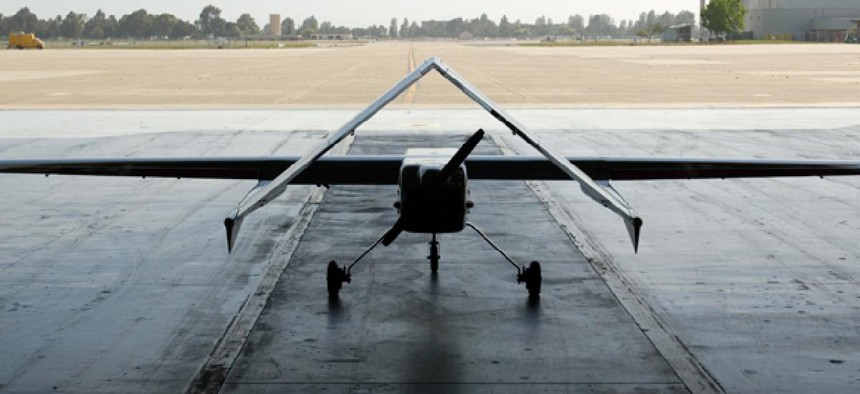Pentagon adds 66 countries to list for possible drone sales

NASA
Policy change still subject to approval from Congress, State Department.
The Defense Department has released guidelines that could be a first step toward allowing drones sales to 66 countries, according to a report from Reuters.
Richard Genaille, deputy director of the Defense Security Cooperation Agency, told attendees at ComDef 2012, a defense industry conference, that the countries eligible for drone purchases were listed in a policy document that the Pentagon recently developed. Currently, drones are subject to strict federal government export restrictions and any change in policy requires approval from Congress and the State Department.
Countries including Japan and Australia have been seeking to purchase drones but cannot because of the federal restrictions. In 2011, a possible sale of Northrop Grumman’s Global Hawk drones to South Korea was scuttled. Future exports would consist mainly of unarmed surveillance drones.
Defense manufacturers have buffered possible Pentagon budget cuts by ramping up foreign arms exports. The Obama administration has helped facilitate this process, and one report found these sales now comprise 25 percent of revenue for arms manufacturers. Northrop Grumman chief executive Wes Bush told Reuters that arms restrictions would erode U.S. competitiveness in possible drone exports, referring to the loss in sales following the federal restriction on satellite sales in the 1990s.
"The consequences of the decisions that were made in the early '90s were devastating for the U.S. industrial base, and ultimately did nothing to enhance security, and in fact, were detrimental to our security," Bush told Reuters. .
The White House has looked to further change arms export regulations, but has met fierce opposition from congressional Republicans, Reuters said. A move to create a single agency to license arms exports met opposition, so policymakers have worked through the State Department’s munitions list to move some items to the more flexible commercial export list the Commerce Department maintains.
The presidential election could slow any possible changes in arms export policy, but some defense officials are optimistic about progress in this realm.
“Regardless of what happens in November, we should continue this work and bring it closure," Beth McCormick, deputy assistant secretary for Defense trade and regional security, said to Reuters.



